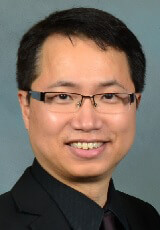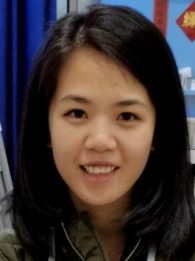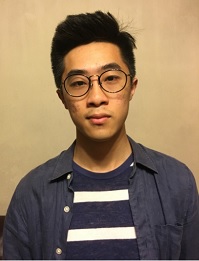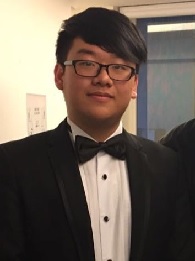Educational Concepts we strongly believe and Practice
Brain-Based Learning (BBL) Approach
Brain-Based Learning (BBL) emerged in the 1980s and it offers a perspective for educators to understand students learning by connecting neuro-scientific findings to instructional approaches.
Brain-Based Learning advocates such as Caine and Caine (1997a) have for some time now been posing the question that given the widespread use of the internet that enables many students to access information that surpasses textbook and teacher knowledge, how will students of the future be able to continue sitting in rows and how will they react to the careful and controlled dispensing of knowledge as in the traditional teaching approach?
“Students have always faced distractions and time-wasters. But computers and cellphones, and the constant stream of stimuli they offer, pose a profound new challenge to focusing and learning.” New York Times 21 Nov 2010. In the last few decades, rapid developments in technology all over the world, and the increased popularity of computers, mobile phones and electronic gadgets has led to a rapid change in human life, especially for the younger generation.
Given these drastic changes in students’ behaviour and the influence of technology on young learners, there is no doubt that the traditional style of teaching and learning, the role of teachers and even the importance of the schooling system are under challenge.
As stated earlier, other educators (Brandsford et al, 2000; Cheng, Mok and Tsui, 2001) agree and argue that teachers must assume the new major role of facilitators, supporting students’ learning processes and developing lifelong self-learning abilities. Similarly, educators who integrate ICT in education emphasize the need for a convergence between technology and pedagogical perspectives, whereby students’ abilities to acquire organized sets of facts and skills are actually enhanced if they are connected to meaningful problem-solving activities (Steinberg1989; Jonassen 1995; Wild 1995).
These findings reinforce the need for teachers to make a paradigm shift and to learn more about other theories related to learning such as Cognitive theories of learning; Information Processing; Systematic Instructional Design; Constructivism; and most recently Brain-Based Learning.
The notion of “Brain-Based Learning” emerged in the 1980s and its proponents (Caine and Caine, 1994, 1997b & 2006; Sousa, 1995 & 2006; Jensen, 1995, 1997, 2000a & 2005; Zull, 2002) have since published many books and articles explaining how the brain’s functions affect learning. At the same time, teaching principles derived from brain research and brain-compatible teaching strategies have been developed. A table with Brain-Based Learning Principles suggested by Diamond and Hopson (1998), Caine and Caine (1994), and Jensen (2000) is included in Appendix 2. By examining their suggested principles, one can gain a better understanding of how the brain reacts to the physical, social and emotional learning environment; how learning tasks can be structured to challenge the brain into higher cognitive functions like making meaning or finding patterns, how to gain learners attention and on how memory can be facilitated. From such principles and strategies, it can be argued school administrators, teachers and parents can all obtain a better understanding of students’ learning and behaviors based on neurological findings. As teachers apply such Brain-compatible strategies, it is argued, they should be able to boost students’ learning motivation and learning effectiveness.
A number of studies tracing students’ academic performance following Brain-Based schooling practices, have shown positive effects, not only on students’ academic results, but also, on the school culture, climate and classroom instructions (Caine and Caine 1995 & 2000; Caulfield, Kidd, and Kocher, 2000).
Caine and her colleagues in the United States successfully integrated brain research with an effective instructional model to teach at-risk students in Idyllwild high school (California). After 10 weeks teaching, it was reported that all 17 students (with a wide range of abilities, emotional problems, and some from unstable families), had made remarkable progress in their participation in learning activities and had passed the basic test (Caine, 2000). These studies provide some confidence that further research into the application of “brain-based principles” in the classroom is worthwhile.
Nevertheless, some critics have argued that some neuroscience research findings were misinterpreted. For example, they have argued that some Brain-Based principles are only “speculation” or “assumptions” and that many educators have been poorly informed about brain development and neural functions. Hence, they argue, that attempts to link that understanding directly to instruction and educational practice is questionable (Bruer, 1997; Jorgenson, 2003).
Jensen (2000b) emphasizes the importance of making well-informed judgments and of only exploring Brain-Based Learning’s application with sound knowledge and taking into account perspectives from different disciplines.
Much “Brain-Based Learning” or “Brain-Based Education” research in recent years has been qualitative and has focused on quite diverse aspects of the educational context. For example, Hoge (2002), studied kindergarten/first grade teachers who were applying Brain-Based Learning strategies to literacy learning. On the other hand, Kasper (2004) studied 6 volunteer elementary teachers who applied an Instructional Rubric that was derived from Brain-Based Principles. They were encouraged to reflect on their efforts and then make adjustments in their teaching approach. Other researchers have explored the application of Brain-Based Learning to teaching different school subjects such as: Physical Education, Religious Education, and the promotion of critical thinking in adult learners (White, 2004; Trapp 2005; Tremarche, Robinson and Graham, 2007).
By contrast, Wagner-Heaston (2007) studied ‘The effect of teachers’ voices on the application of Brain-Compatible teaching and learning strategies in the foreign language classroom.’ aiming to discover foreign language teachers’ perceptions of brain-based teaching and learning and how these principles affect student learning. Most of these researches are conducted in the USA, and a few in Australia.
It was not until 2001, that Brain-Based Learning approaches were first introduced to school leaders and teachers in Hong Kong – a society with a mixture of eastern and western culture. To date, there appears to be few, if any, studies that have focused on how all teaching staff of a school respond to BBL, acquire such intervention skills and continue to manage their classroom teaching with this approach for a substantial period. At this stage, there have been only two qualitative research studies in Hong Kong on the impact of Brain-Based Learning (Chan, 2006 and Huen, 2010), and they acknowledged the need for further research in this area.
It is clear that the development and implementation of Brain-Based Learning (BBL) approaches in school contexts has been gaining increasing attention and applications, both locally and internationally. And if the impact of BBL is going to be understood and more widely applied, then educators’ perspectives and authentic applications in different cultures or countries need to be more thoroughly explored. Brain and Mind Ambassador project involving schools in Spain and Hong Kong will be an important contribution to extending our knowledge of this field within the European and Asian contexts.
One key significant purpose of BMA project is to seek an in-depth understanding (based on key “change agent” schools) of the factors involved in the successful evolution and implementation of a Brain-Based Learning approach to developing an effective school and effective pedagogy. The aim is to identify successful strategies and make recommendations that might well be trialed, and subsequently adopted, by other schools.
In addition, when learners are also provided the opportunities to inquire, explore, make logical analysis on understanding how their own brain functions, emotional, social or cognitive capacities can be positively boosted through adopting brain-compatible food, physical exercises, mental and memory training, plus learning collaboratively with their classmates and teachers. The outcome and impact of this approach can benefit learners as they enter teenage or adulthood.











